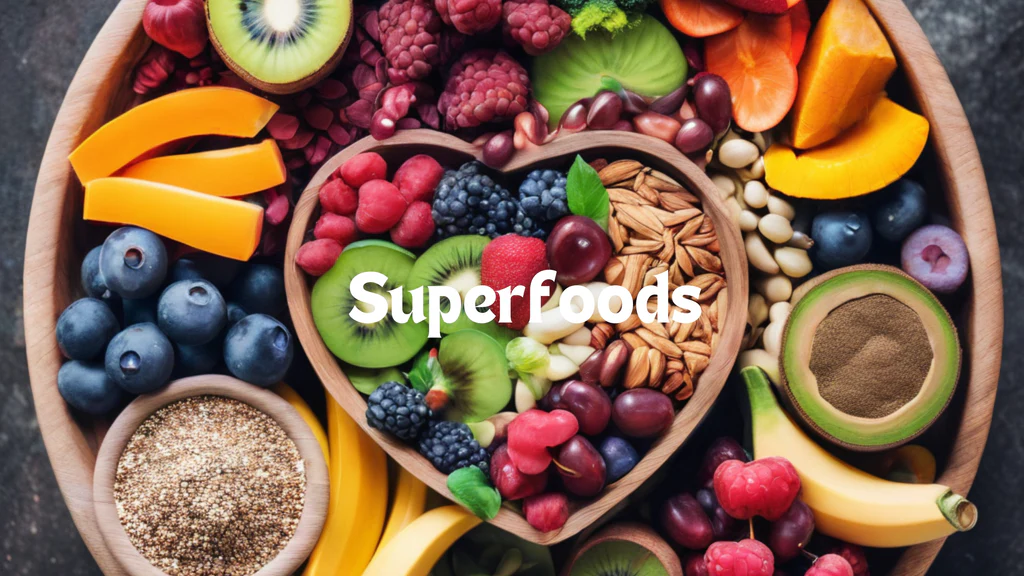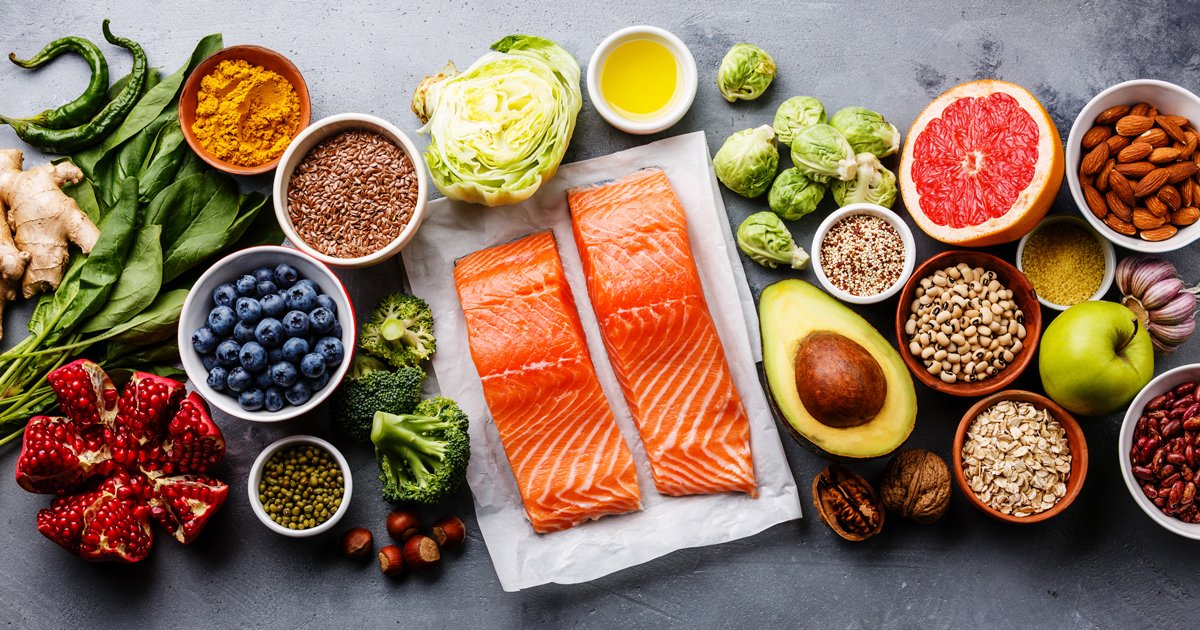In today’s health-conscious world, superfoods have gained significant attention for their potential to enhance our well-being. These nutrient-dense foods are packed with vitamins, minerals, antioxidants, and other beneficial compounds that support overall health. Incorporating superfoods into your diet can provide a natural boost to your energy, immune system, and even mental clarity. Let’s explore some of the best superfoods to add to your meals.
Blueberries: A Powerhouse of Antioxidants
Blueberries are often touted as one of the healthiest fruits due to their high antioxidant content. Antioxidants help fight free radicals in the body, which can reduce inflammation and protect cells from damage. Regular consumption of blueberries has been linked to improved brain health, heart health, and a stronger immune system.
Tip:
Add fresh blueberries to smoothies, yogurt, or salads to enjoy their sweet, nutrient-packed benefits.

Superfoods to Include in Your Diet
Kale: A Leafy Green Rich in Nutrients
Kale is a leafy green vegetable that stands out for its exceptional nutrient profile. It is rich in vitamins A, C, and K, as well as fiber, calcium, and iron. This vegetable is known for its anti-inflammatory properties and ability to support digestive health. Kale can also promote healthy skin and improve bone strength.
Tip:
Incorporate kale into salads, smoothies, or stir-fries for a delicious way to boost your nutrient intake.
Chia Seeds: Tiny Seeds, Big Benefits
Chia seeds may be small, but they pack a powerful nutritional punch. They are an excellent source of omega-3 fatty acids, fiber, and protein. Chia seeds are also known for their ability to absorb water, which can help keep you hydrated and support digestion. These seeds are also beneficial for heart health and weight management.
Tip:
Add chia seeds to smoothies, puddings, or sprinkle them on top of oatmeal or yogurt for an extra nutritional boost.
Avocados: Healthy Fats for Your Body
Avocados are rich in heart-healthy monounsaturated fats, which support cardiovascular health and reduce bad cholesterol levels. They are also packed with fiber, vitamins E and K, and potassium. Avocados can help improve digestion, enhance skin health, and support overall cellular function.
Tip:
Enjoy avocados in salads, sandwiches, or as a creamy addition to smoothies or homemade guacamole.
Sweet Potatoes: A Nutrient-Dense Root Vegetable
Sweet potatoes are a rich source of vitamins A and C, both of which are essential for immune function and skin health. They are also high in fiber, which promotes digestive health and helps regulate blood sugar levels. The natural sweetness of sweet potatoes makes them a versatile ingredient in both savory and sweet dishes.
Tip:
Roast sweet potatoes for a nutritious side dish or mash them for a comforting meal.
Almonds: A Nutrient-Packed Snack
Almonds are packed with healthy fats, protein, fiber, and vitamin E. These nuts are known for their heart-healthy benefits and ability to support brain function. Almonds are also great for managing blood sugar levels and promoting healthy skin. They make an excellent snack or addition to various dishes.
Tip:
Snack on a handful of raw almonds or add them to salads, smoothies, or baked goods for added crunch and nutrition.
Salmon: A Rich Source of Omega-3 Fatty Acids
Salmon is a fatty fish that is renowned for its high content of omega-3 fatty acids, which are essential for brain health, reducing inflammation, and supporting heart health. Salmon is also rich in high-quality protein and important vitamins and minerals, including B vitamins and selenium.
Tip:
Grill or bake salmon for a delicious and healthy meal. Pair it with vegetables or quinoa for a complete dish.
Turmeric: A Spice with Powerful Anti-Inflammatory Properties
Turmeric is a bright yellow spice that contains curcumin, a compound known for its powerful anti-inflammatory and antioxidant properties. Turmeric has been linked to numerous health benefits, including reduced inflammation, improved digestion, and enhanced brain function. It’s also believed to have anti-cancer properties.
Tip:
Add turmeric to soups, curries, or smoothies for a flavorful and health-boosting kick.
Greek Yogurt: A Probiotic Powerhouse
Greek yogurt is not only a great source of protein but also contains probiotics, which support gut health. The probiotics found in Greek yogurt help maintain a healthy balance of bacteria in the digestive system, which is crucial for digestion and overall immune function. Additionally, Greek yogurt is rich in calcium and B vitamins.
Tip:
Enjoy Greek yogurt as a snack with fresh fruit or mix it into smoothies, dressings, or baked goods.
Quinoa: A Complete Plant-Based Protein
Quinoa is a complete protein, meaning it contains all nine essential amino acids that the body cannot produce on its own. It is also high in fiber, vitamins, and minerals like magnesium and iron. Quinoa is a gluten-free grain that can help support muscle growth, digestion, and energy levels.
Tip:
Use quinoa as a base for salads, bowls, or as a substitute for rice in your favorite dishes.
Conclusion
Incorporating superfoods into your daily meals can have a significant impact on your health and well-being. From antioxidant-rich blueberries to omega-3-packed salmon, these superfoods provide a wealth of nutrients that can support your body inside and out. By making small adjustments to your diet and adding these nutrient-dense foods, you can boost your energy, improve digestion, and enhance overall health. So, start adding these superfoods to your meals today for a healthier, more vibrant life.




